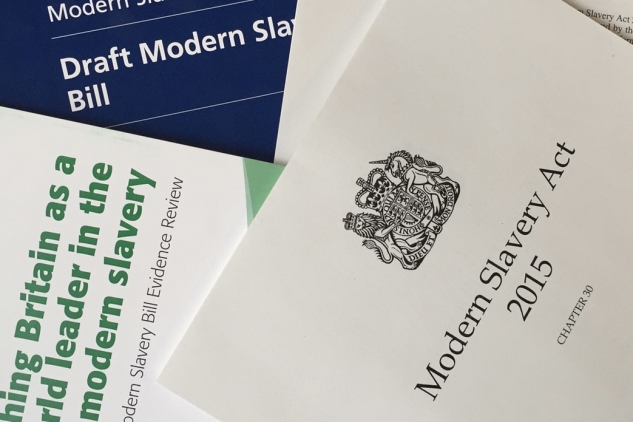
Anti-Slavery Day 2022: Modern slavery survivors must be protected not further harmed
To commemorate Anti-Slavery Day 2022, the Helen Bamber Foundation and Focus on Labour Exploitation (FLEX), respective Chair and Secretariat of the Taskforce of Victims of Trafficking in Immigration Detention, reflect on the Government’s treatment of survivors of trafficking and modern slavery; the harm caused by immigration detention; and the steps needed to address a broken system and ensure survivors are protected and supported.
This year marks seven years since the introduction of the Modern Slavery Act 2015, which was celebrated by the Government as delivering ‘enhanced protection and support for victims’. Yet, rather than being an occasion to mark the ways in which the Act has helped victims, and consider how it can be strengthened and improved, this year’s Anti-Slavery Day comes at a time when we are having to defend survivors’ access to protection and support at all. Survivors are already struggling to access the support they need to recover and rebuild their lives, while there are signs that the Home Secretary is likely to further limit protection and support through the forthcoming Modern Slavery Bill. And just last week, the Government signalled its intention to stop treating modern slavery as a safeguarding issue by reclassifying it as an ‘illegal’ immigration issue. This is in the context of increasing political rhetoric which falsely claims that survivors are ‘abusing the system’, despite all evidence to the contrary. The previous Independent Anti-Slavery Commissioner, Dame Sara Thornton (who notably the Government has not replaced, despite her leaving her post in April) has publicly refuted these claims, as has the Head of the Gangmasters and Labour Abuse Authority.
Detention of victims
Our report published earlier this month highlighted that over 90% of people referred from immigration detention to the National Referral Mechanism as potential victims of trafficking were subsequently confirmed by the Government to be victims. However, people who have been trafficked are frequently not identified or are treated as criminals rather than as victims and locked up, suffering significant physical and mental harm as result. One case shared in the report involved a young man being detained after having been forced to work in a cannabis factory for two years. In immigration detention, his mental health suffered to the point that he was placed on suicide watch.
In short, there is no evidence of a system being abused – rather, it is people who have already been exploited and mistreated who are experiencing further abuse by an immigration system that is not fit for purpose. It is time to drop the unevidenced claims and focus on addressing a system that is broken.
Improving the UK’s anti-trafficking response
The forthcoming Modern Slavery Bill should be an opportunity to strengthen the UK’s anti-trafficking response and address the issues identified by victims, practitioners and international bodies, including the need for survivors to have access to work and secure status in this country in order to rebuild lives after trafficking. During the passage of the Nationality and Borders Bill, the Government emphasised that “our domestic legislation should align with our international obligations, [which] includes [the Council of Europe Convention on Action against Trafficking in Human Beings]—ECAT”. ECAT, already signed and ratified by the UK, creates a number of obligations for the State to address trafficking, including to protect and support victims and survivors. To achieve this alignment, the Government should prioritise incorporating ECAT into domestic law and state clearly in any new Modern Slavery Bill that everything in the Bill should be read as in line with and not contrary to ECAT. The draft Victims Bill should also be amended to ensure that no victim or witness to crime is excluded from coming forward and that there are secure reporting pathways and a clear separation between police and Immigration Enforcement in order for victims of crime to feel safe to report abuse without fear of immigration repercussions, as the Detention Taskforce called for in our submission to the consultation on the Bill and the Justice Committee have recommended in their report. All victims, including those with insecure status, must feel able to access the help they need.
Denying survivors of trafficking the support and security they need to recover not only leaves them at risk of further exploitation and being re-trafficked, but it also prevents them from helping the police to catch and prosecute their traffickers. In short, it undermines any meaningful commitment to tackling modern slavery. There are many steps the UK could take towards being a ‘world leader’ in the fight against modern slavery, but they require the Government to stop prioritising immigration control over safeguarding and protection of victims; to listen to survivors and those who work with them; and to commit to ensuring that all survivors are provided with the support they need to recover and rebuild their lives. This Anti-Slavery Day, we are calling on the Government to take these steps to show its commitment to tackling modern slavery in the UK.
